History of Psychiatry with Peter Kramer
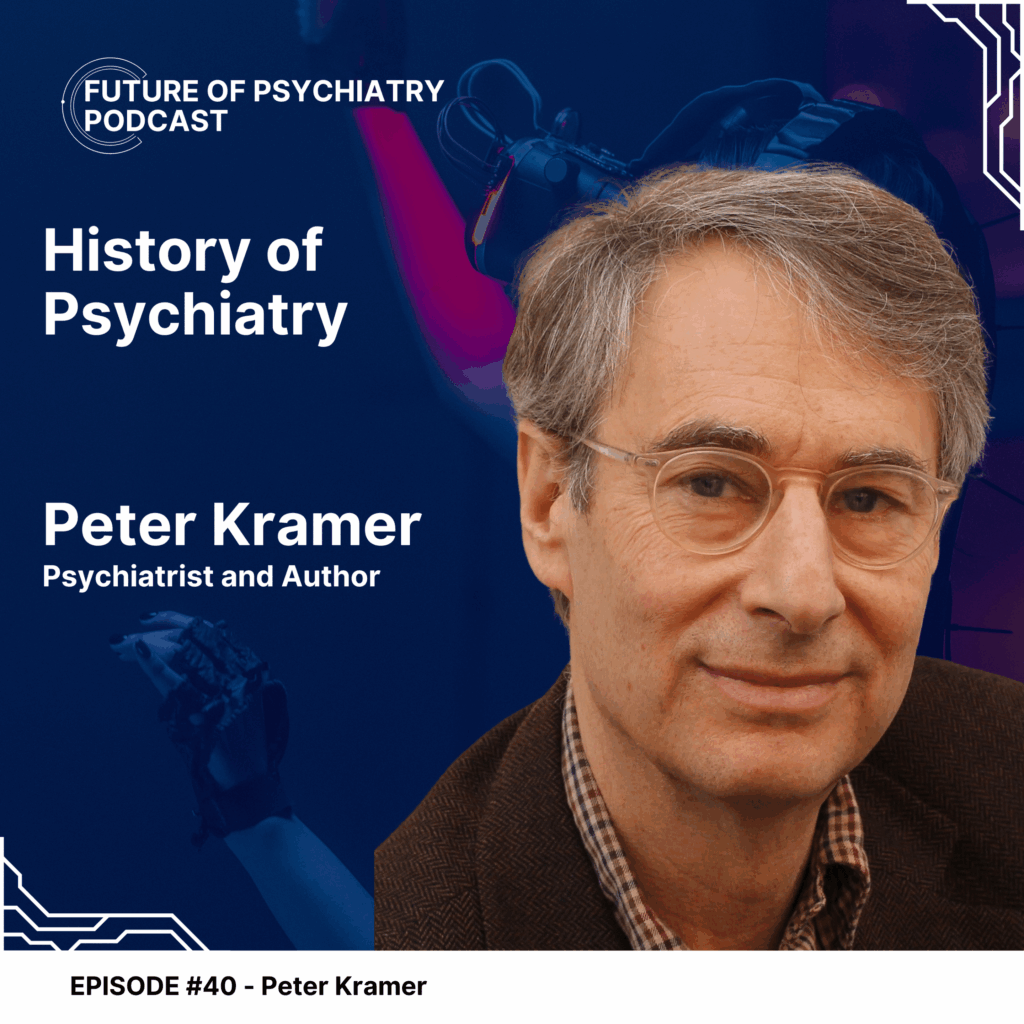
In this new episode Peter Kramer delved into the future of mental health treatment, exploring advancements in pharmaceuticals, holistic approaches, and ethical considerations. Key themes included the evolving landscape of psychiatric medication, the importance of personalized and holistic care, navigating ethical dilemmas in clinical practice, and charting a path toward a more equitable and accessible mental health care system. The conversation emphasized the need for clinicians to remain adaptable, compassionate, and ethically grounded as they navigate the complexities of psychiatric treatment.
Personalized Psychiatry with Hans Eriksson
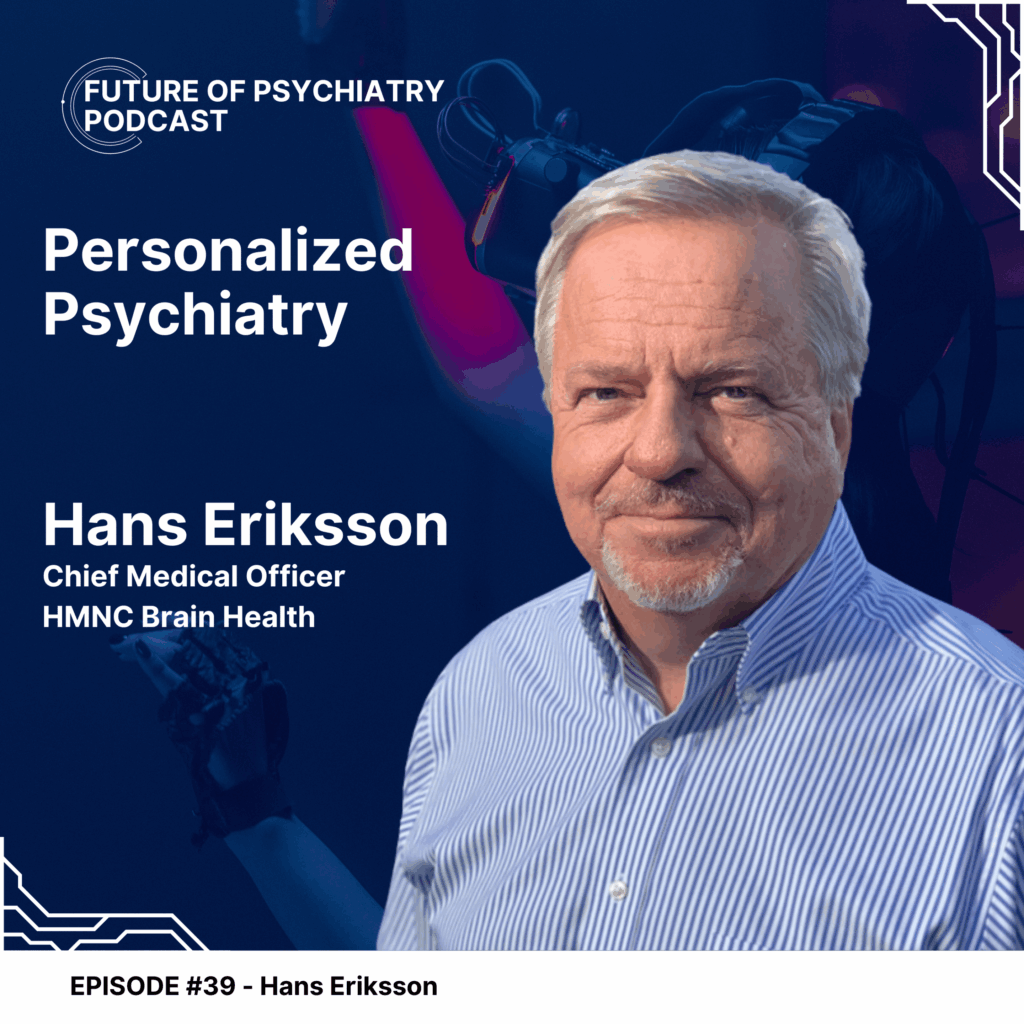
Exploring personalized treatment through predictive diagnostics and genetics, precision psychiatry aims to optimize outcomes. Innovative antidepressants and AI-driven diagnostics offer promise in revolutionizing mental health care despite challenges.
Health Information Exchanges with Benjamin Rudeen
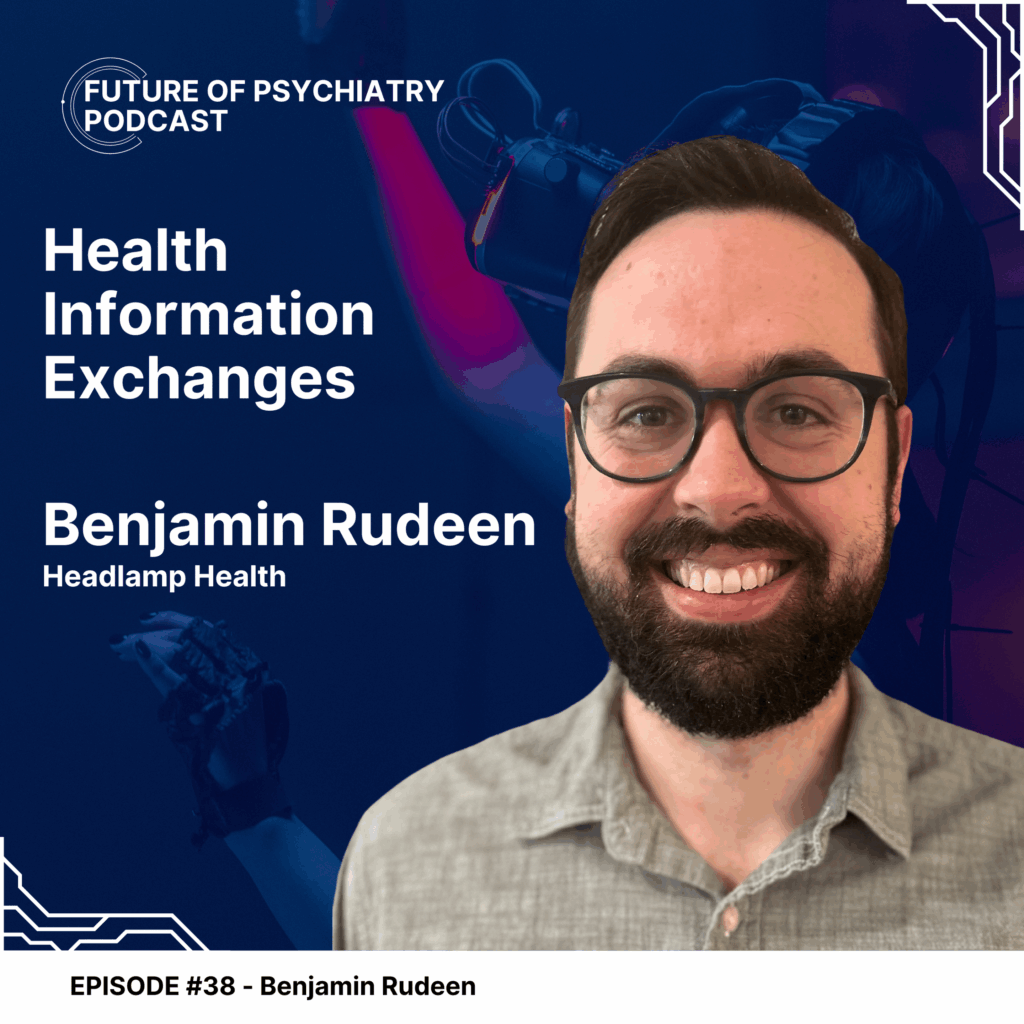
In the new episode of the Future of Psychiatry podcast technology, including artificial intelligence and health information exchanges are reshaping the landscape of mental wellness. HIEs, designed to collect and share health data, aim to enhance care continuity despite facing challenges such as underutilization and interoperability issues. AI offers personalized health insights by analyzing data, but ethical considerations like privacy and bias must be addressed. Additionally, the episode highlighted the complexities of personalized care, emphasizing the importance of collaboration and patient-centric approaches. As technology continues to evolve, embracing innovation offers the opportunity to create a more connected and informed future for mental health care.
Psychedelic Research for Mental Health with Dr. Adam Levin
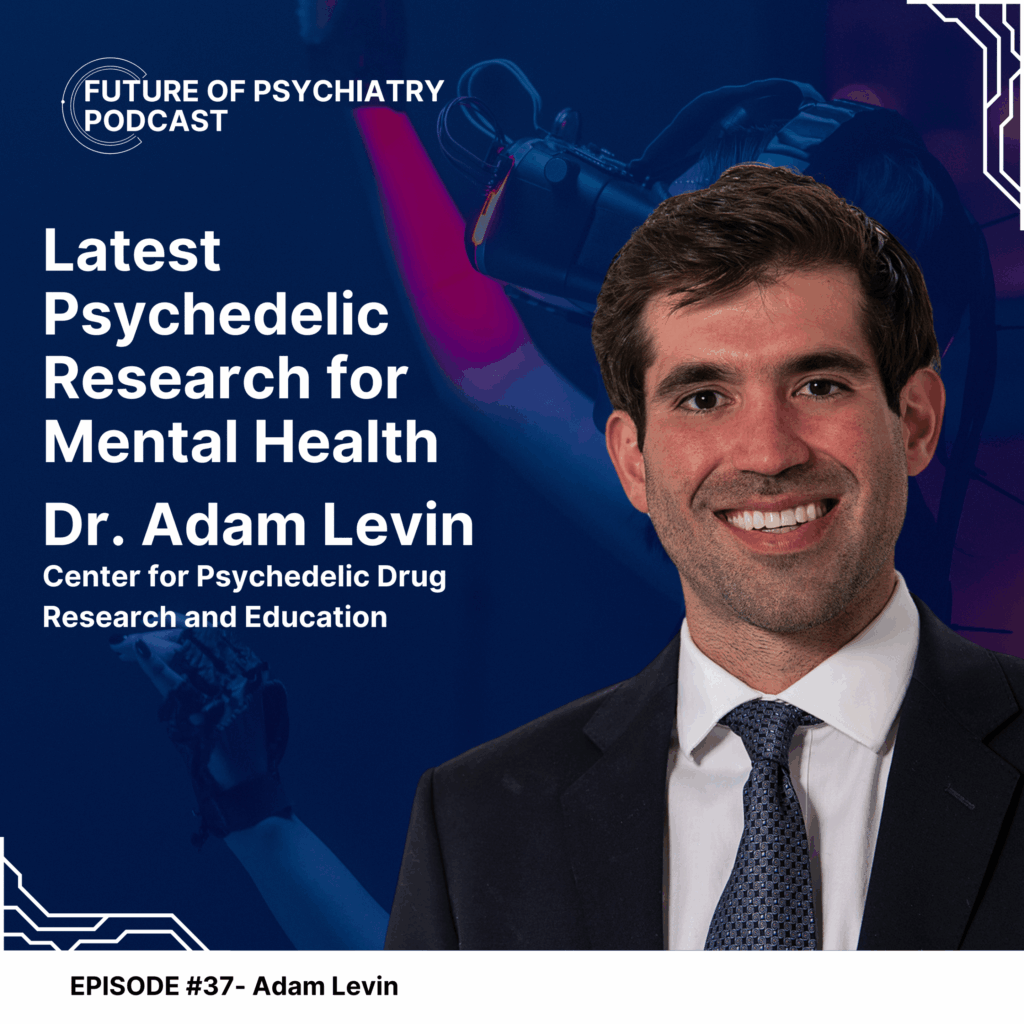
Psychedelic Research for Mental Health:
In this new episode, experts explore the burgeoning field of psychedelic psychiatry, highlighting the transformative potential of guided psychedelic experiences, personal narratives of dedication and curiosity among pioneers, the challenges of integrating psychedelics into clinical practice responsibly, and the broader ethical considerations. It also touches on technological innovations like artificial intelligence in mental health care. Overall, the conversation offers a glimpse into a future where unconventional therapies and cutting-edge technologies redefine mental health treatment with compassion and innovation.
AI-based Smart Documenting with JotPsych
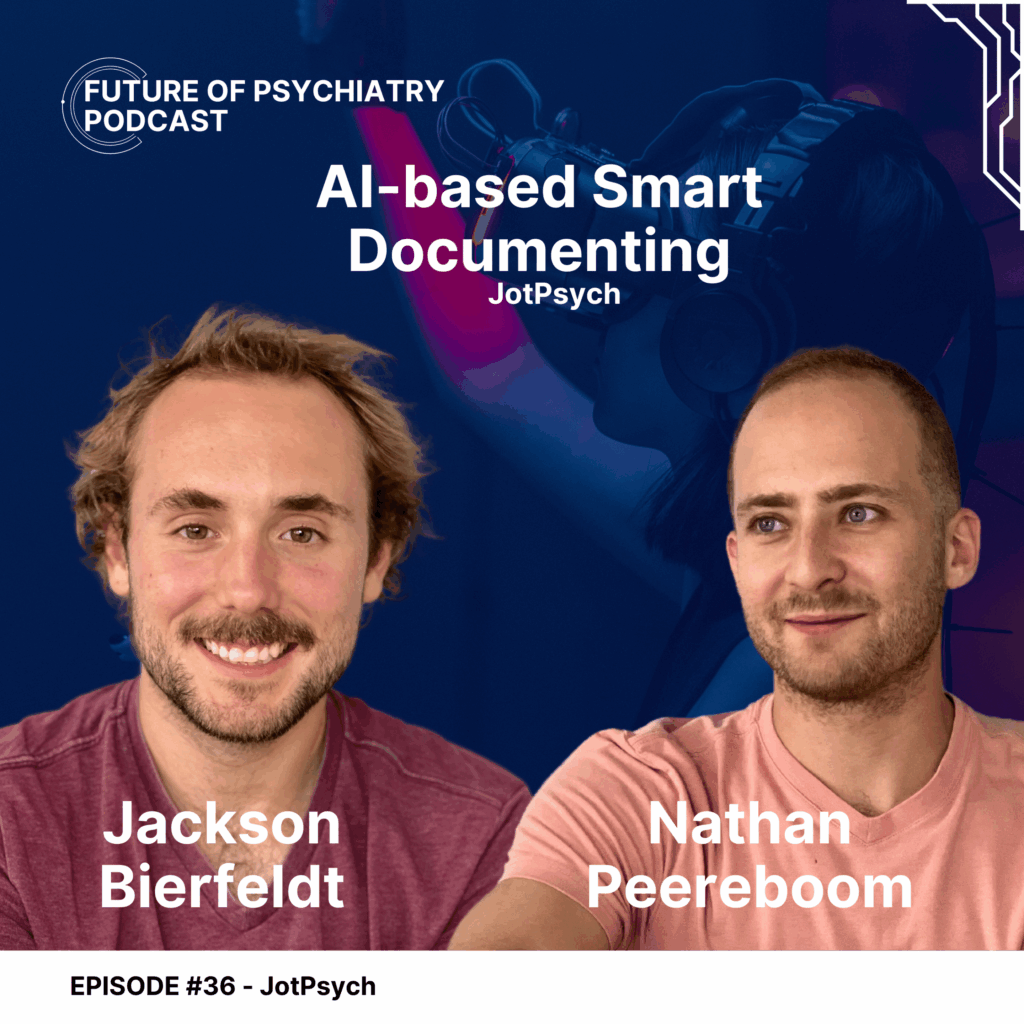
AI-based Smart Documenting: Revolutionizing Healthcare through Innovation. This new episode delves into the transformative impact of Artificial Intelligence (AI) on healthcare, tracing its evolution from a novel concept to a fundamental force reshaping the industry. It highlights how AI-powered technologies streamline medical documentation, enhance patient care through accurate diagnosis and personalized treatment, and empower patients with virtual assistants. Ethical and regulatory considerations are discussed, emphasizing the importance of privacy, data security, and fairness. Collaboration among stakeholders is deemed crucial for harnessing AI’s full potential in improving healthcare delivery and outcomes.
Creativity in Psychiatry with Dr. Robert Bilder
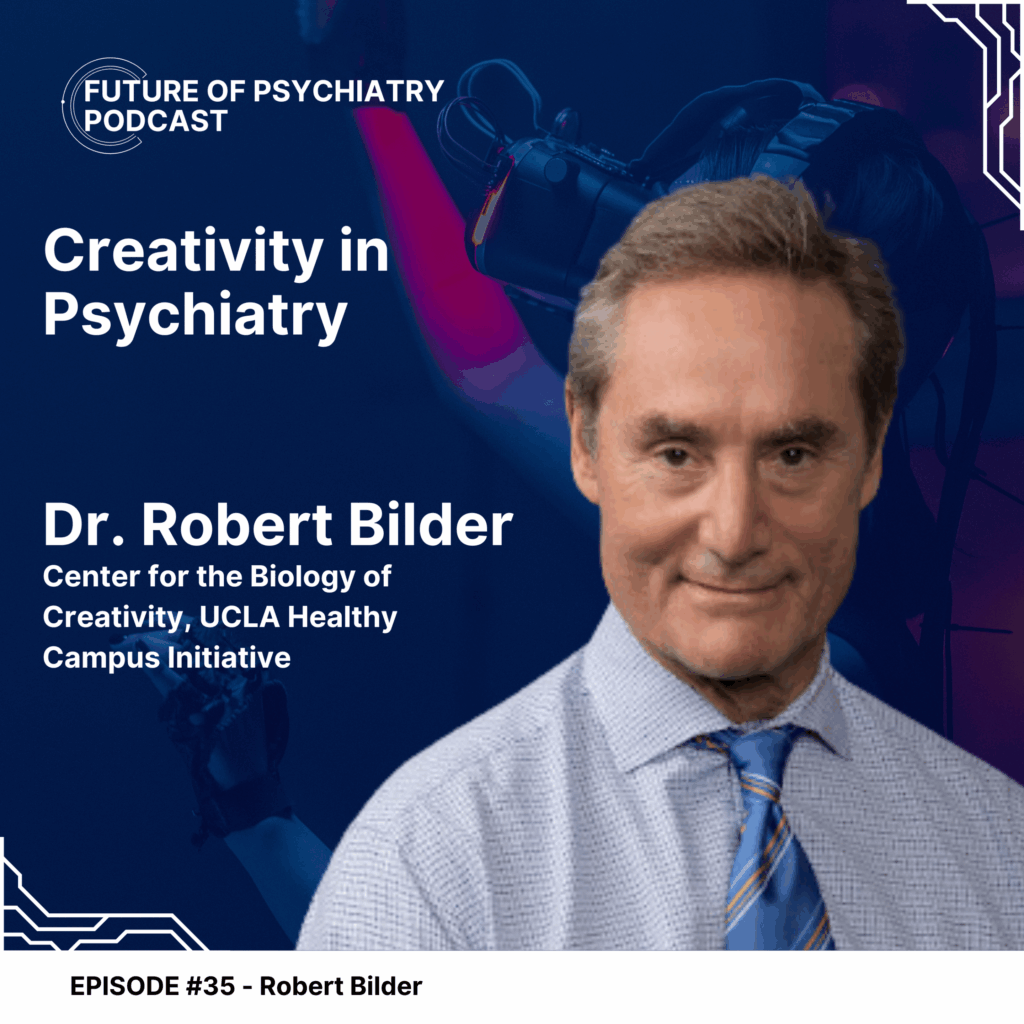
Creativity and psychiatry: Explore this dynamic relationship. Delve into the therapeutic power of creative expression, redefining traditional psychiatric approaches for mental well-being. Embrace creativity to navigate emotional landscapes with resilience and insight, offering transformative possibilities within the field of psychiatry.
Gut Brain Interaction with Dr. Adrian Miranda
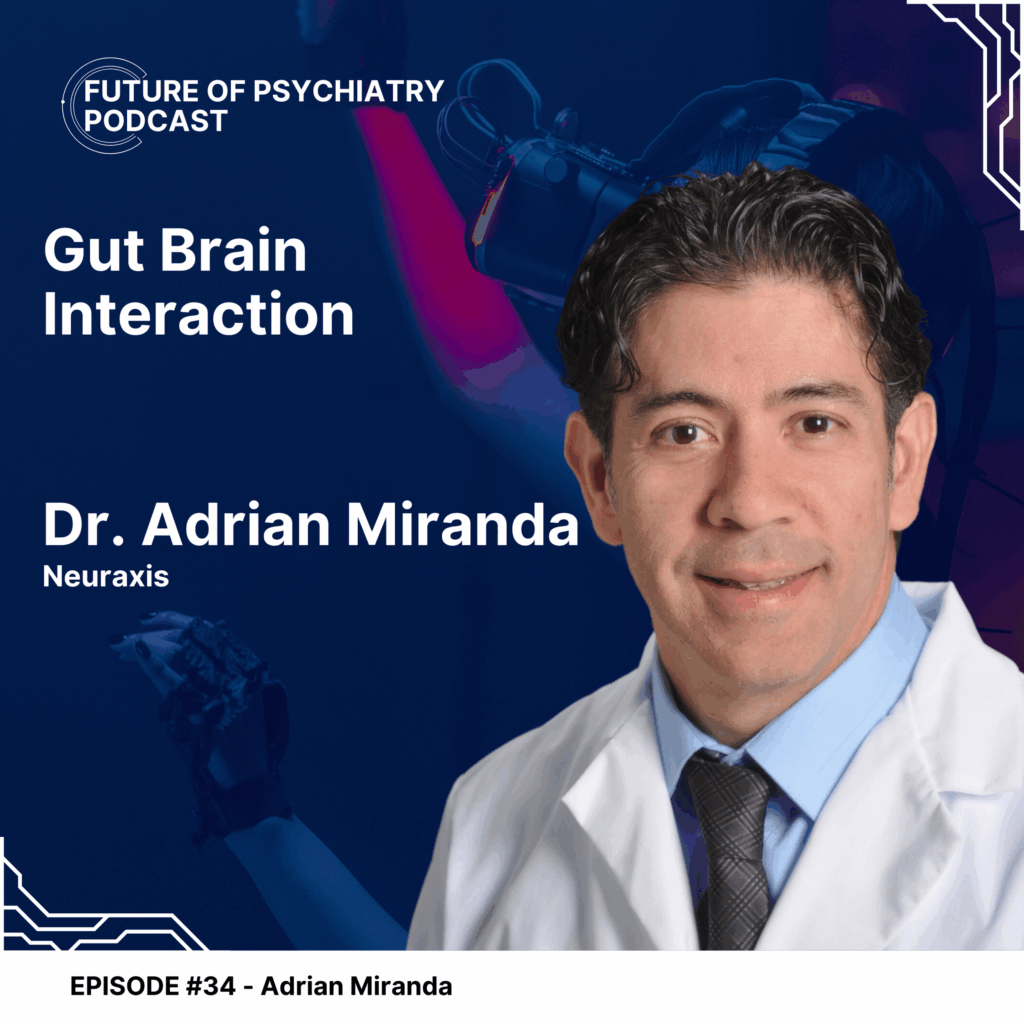
Gut Brain: Exploring Neuromodulation’s Role in Pain Management and Beyond
Discover how neuromodulation is reshaping pain management, particularly for abdominal disorders. By directly influencing neurological pathways, this innovative approach offers personalized relief that goes beyond traditional medication. Real-life experiences underscore its transformative potential. As research progresses, neuromodulation holds promise for broader applications in healthcare, potentially revolutionizing treatment protocols and becoming a cornerstone of patient care.
Psychedelic Health Insurance Benefits with Sherry Rais

Psychedelic Health leads the discussion in this episode of the “Future of Psychiatry” podcast, where host Bruce Bassi and guest Sherry Rais delve into innovative insurance benefits. Discover how Anthea, under CEO Sherry Rais’s guidance, pioneers accessible psychedelic-assisted therapies, beginning with ketamine treatment. Explore the transformative potential of these therapies and their pivotal role in shaping the future of mental healthcare.
Virtual Reality Advances with Dr. Kim Bullock: Techniques and Innovations

Virtual Reality (VR) is highlighted as a significant advancement in mental health, with specialists discussing its innovative applications in treating psychiatric conditions like phobias, addiction, eating disorders, and functional disorders. The conversation explores VR’s potential to transform implicit biases, alter body image perception, and facilitate cognitive enhancement. It emphasizes the importance of robust research, the adoption of industry-standard guidelines, and clinicians’ active participation in shaping VR’s future in Psychiatry, showcasing the technology’s expansive possibilities beyond therapy.
Virtual Reality: Accelerating Therapy Outcomes with Dr. Howard Gurr
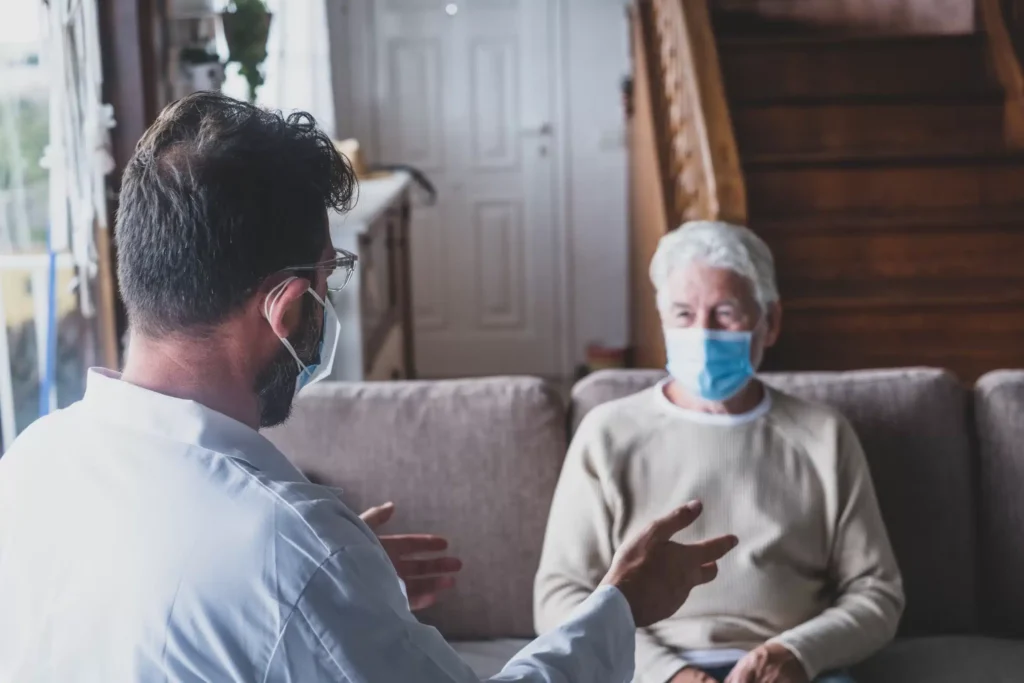
Review VR’s benefits in speeding up therapy, overcoming traditional therapy limitations, and improving patient compliance. Dr. Gurr shares insights on VR’s risks, its future in clinical practice, and its use in treating social anxiety, autism, and pain management. This episode is essential for professionals looking to incorporate technology into mental health treatments.
